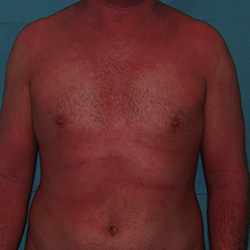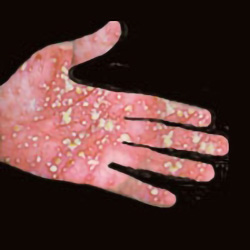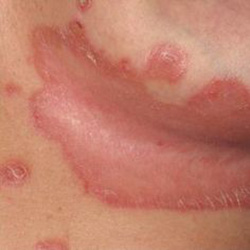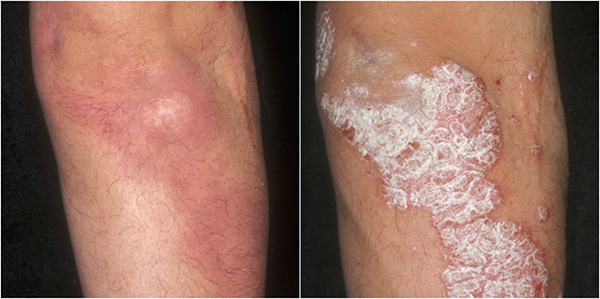Embracing Homeopathy for Effective Psoriasis Management: A Gentle Path to Healing
Introduction
Psoriasis, a chronic autoimmune skin condition, affects millions worldwide, causing discomfort, embarrassment, and a diminished quality of life. While conventional treatments can offer temporary relief, many patients seek safer and more holistic alternatives. Homeopathy presents a gentle and natural approach to managing psoriasis, addressing not just the symptoms but the root causes of the condition. In this comprehensive blog, we will delve into the intricacies of psoriasis, its impact on patients, explore the various types of psoriasis, highlight the complications that may arise, discuss commonly used homeopathic medicines, and present the remarkable benefits of homeopathic management in alleviating symptoms and restoring well-being.
Understanding Psoriasis and its Types
Psoriasis is a chronic skin disorder that results from an overactive immune system mistakenly attacking healthy skin cells. The accelerated cell growth leads to the accumulation of thick, red, scaly patches on the skin’s surface. The condition can range from mild to severe and may also involve joint inflammation in psoriatic arthritis.
Types of Psoriasis
- Plaque Psoriasis: The most common type, characterized by raised, red patches covered with silvery scales. These patches can appear anywhere on the body, commonly on the elbows, knees, scalp, and lower back.
- Guttate Psoriasis: Often triggered by bacterial infections like strep throat, this type appears as small, dot-like lesions on the skin. Guttate psoriasis usually affects children and young adults.
- Inverse Psoriasis: This type primarily affects skin folds, such as the armpits, groin, and under the breasts. The patches are red and smooth, without the typical scaling seen in other types.
- Pustular Psoriasis: This uncommon type is characterized by pus-filled blisters surrounded by red, inflamed skin. Pustular psoriasis can be localized or generalized, affecting larger areas of the body.
- Erythrodermic Psoriasis: A severe and rare form, causing widespread redness and shedding of the skin’s surface. Erythrodermic psoriasis requires immediate medical attention.
- Psoriatic Arthritis: In addition to skin symptoms, some individuals with psoriasis may develop inflammation and joint pain, known as psoriatic arthritis

Erythrodermic Psoriasis

Pustular Psoriasis

Guttate Psoriasis

Inverse Psoriasis

Plaque Psoriasis
Complications of Psoriasis
Psoriasis, if left untreated or not effectively managed, can lead to various complications that impact both physical and emotional well-being. Some common complications include:
- Psoriatic Arthritis: A significant percentage of individuals with psoriasis may develop psoriatic arthritis. This condition causes joint pain, stiffness, and swelling, leading to reduced mobility and potential joint damage if not properly managed.
- Emotional and Psychological Impact: The visible nature of psoriasis lesions can have a profound impact on a person’s self-esteem and emotional well-being. Feelings of embarrassment, self-consciousness, anxiety, and depression are not uncommon in individuals living with psoriasis.
- Cardiovascular Complications: Research suggests that psoriasis is associated with an increased risk of developing cardiovascular diseases, including heart attack and stroke. The chronic inflammation and immune system dysfunction in psoriasis can contribute to cardiovascular issues.
- Metabolic Syndrome: Psoriasis has been linked to metabolic syndrome, a cluster of conditions that include obesity, high blood pressure, elevated blood sugar levels, and abnormal cholesterol levels. These factors collectively increase the risk of heart disease, stroke, and type 2 diabetes.
- Impact on Daily Life: Severe psoriasis can interfere with daily activities, making it challenging for individuals to perform routine tasks comfortably. Sleep disturbances due to itching and discomfort can also contribute to fatigue and reduced overall quality of life
Commonly Used Homeopathic Medicines for Psoriasis
Homeopathy offers personalized treatment for psoriasis, and several remedies are commonly used based on individual symptoms. Some commonly prescribed homeopathic medicines for psoriasis include:
- Arsenicum Album: Suited for patients with dry, scaly skin and intense itching. Symptoms may worsen at night or due to cold weather.
- Graphites: Beneficial for patients with thick, oozing, and sticky discharge from psoriatic lesions. Itching may be worse at night.
- Sulphur: Suitable for patients with itchy, burning, and red skin. Symptoms often worsen with warmth, bathing, and in the evening.
- Rhus Toxicodendron: Effective for patients with red, swollen, and intensely itchy skin. Symptoms may improve with movement and worsen at rest.
- Sepia: Useful for patients with psoriasis, especially in women with hormonal imbalances. Skin lesions may be brownish or yellowish in color.
Homeopathic Management
Homeopathy, a gentle and safe system of medicine, offers personalized treatment for psoriasis. Homeopathic remedies, derived from natural substances, stimulate the body’s innate healing capacity. The selected remedy is based on an individual’s unique symptoms, physical constitution, and emotional state. Homeopathy aims to address the root causes of psoriasis and promote overall well-being.
Conclusion
Psoriasis, with its physical and emotional impact, can be challenging to endure. Homeopathy offers a ray of hope for those seeking a gentle and effective solution to manage the condition. By tailoring treatment to each individual’s unique symptoms and constitution, homeopathic management addresses psoriasis at its root, leading to substantial improvements in both physical symptoms and emotional well-being. If you or a loved one are grappling with psoriasis, consider embracing the gentle path of homeopathic treatment to experience relief, regain confidence, and embark on a journey towards holistic healing and improved quality of life.”

